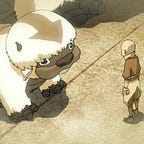The Ending: Exploring Expectation and Tragedy in Ori and the Will of the Wisps
[SPOILERS for Ori and the Will of the Wisps]
I discovered Ori and the Will of the Wisps in early 2021 after being enamored with the precise yet fluid platforming mechanics of Celeste. I didn’t expect to find anything close to Celeste’s quality, but to my satisfaction, I ended up stumbling into another story-driven emotional experience, reaching a level of profoundness beyond mindless entertainment or an exclusively technical challenge. Ori was exactly what I was looking for, even if I didn’t realize it at first. Its pessimistic and fatalistic ending initially left me disappointed and wounded, but ultimately it allowed me to grasp the concept that not all resolutions are predetermined to fulfill the audience’s wishes or the “fairytale” notion of what should occur.
The keystone of this game’s plotline, resolution, and message is its antagonist: Shriek, an (appropriately named) half-petrified and mutated owl.
Her development is a MasterClass in redemption arcs: she is introduced as a contextless terrifying amoral antagonist with nothing in her heart other than destruction, but as you continue to play the game, you receive glimpses of her backstory one by one: being shunned by her community for being deformed, experiencing hostility from parents trying to protect their children, and only feeling acceptance from her own parents. I developed a deep compassion for Shriek’s sense of abandonment and isolation by the story’s ending, which is why it hit me like a freight train when, to my surprise, her redemption arc was purposefully not fulfilled.
This game marked the first (and only) time I have experienced the lack of completion of a fully prepared redemption arc. I was stunned: the loveless death of the antagonist shook me to my core even more so than the subsequent self-sacrificial death of the protagonist. It was the first time the ending to a video game genuinely affected me emotionally for hours on end, and I had to process it before coming to terms with it. As a person who’s always been drawn to the comfort of structure and foreshadowing of a conventional plot, this storyline reversal completely flipped everything I understood about effective consequential storytelling on its head. I’ve experienced and enjoyed tragedies before, but the setup of a redemption arc with the exclusion of that final resolve really bothered me — even simply taking screenshots of the game for this article put a knot in my throat.
For me, Ori and the Will of the Wisps served as the antithesis to Celeste’s positivity. As a college student living in a pandemic-ridden world, barely post-Trump, this game provided a glance into the lasting effects and detriments of prejudice and widespread hatred. They can’t be instantaneously banished from the system; any societal reparation or growth must be measured and purposeful, rather than rushed with an idealist image in mind. Shriek’s lack of absolution is a deliberate plot choice; the sense of abandonment and desolation was so ingrained in her mindset that she couldn’t accept that things could get better. She chooses to remain in darkness because she never knew anything else.
While it was too late for Shriek, Ori’s self-sacrifice suggests that there is still hope for others, adding the final piece to Shriek’s arc that she was unable to provide herself. Ori learned from Shriek’s tragic storyline, ending the Decay and creating a final resounding message that change isn’t something to simply hope for. The game urges its players not to rely on those who have been wronged to fix their own hardships, not because they are incapable, but because it shouldn’t solely be their responsibility.
While the game has received criticism for its “unsatisfactory” ending, I see it as an introspective glimpse into the harsh realities of hate and neglect. While Ori’s sacrifice offers a small beam of hope, Shriek’s tragic end provides a slightly drearier takeaway. To put it simply: not everything works itself out in the end, even if it feels like it should. While I didn’t (and I don’t advise you should) take this advice to heart as a central negative worldview, it also serves as a reminder that sometimes, life is out of our control. It grimly presents the consequences of prejudice and cruelty, and how their undoing isn’t as simple as a change of heart.
